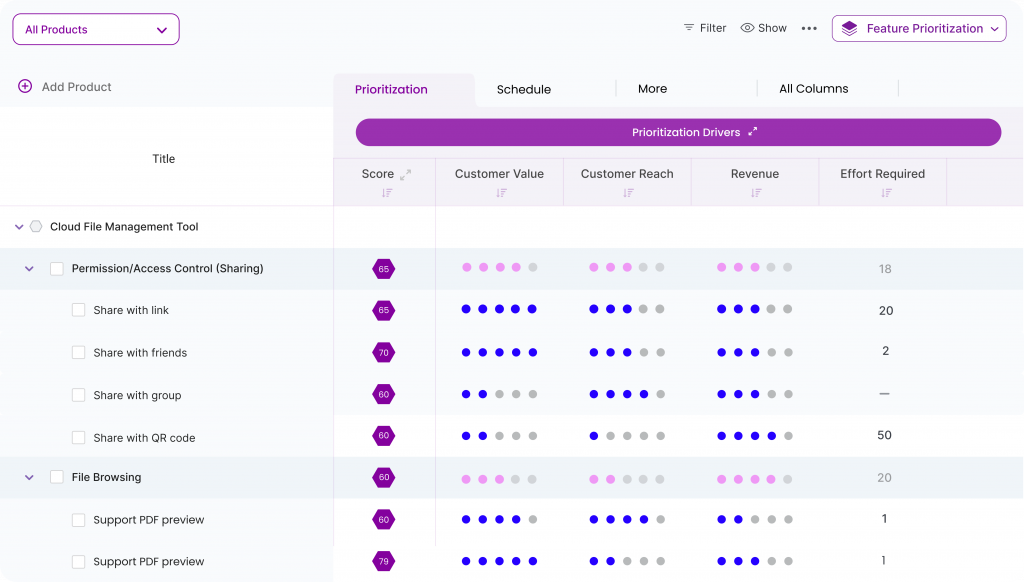Information Technology (IT) Project Manager: Job Role, Requirements and Skill Set for Success

Job Role of IT Project Manager
An Information Technology (IT) project manager coordinates and manages the planning, resourcing, development, testing, and deployment of an information technology project.
An IT project manager is not a stand-alone role and requires extensive coordination with team members and stakeholders.
For instance, while an IT team may develop a website, stakeholders will include customer experience managers, content and design teams (marketing), and even sales and accounting when the project impacts customer transactions.
For this reason, the manager of such a project is expected not just to have technical proficiency but also to have good communication skills in order to have the scope and goal communicated and discussed with non-technical stakeholders easily.
According to PayScale, a typical IT project manager makes an average of $88,000, with dedicated IT companies like IBM and Accenture averaging over $100,000.
A typical job as IT Project Manager requires a 4-year engineering degree. However, companies like Google, Tesla, and many others no longer mandate college degrees and prefer experience as better proof of skill. You can learn more about IT Project Management here.
Top 10 Skills Required From IT Managers to Succeed in 2021
Planning and scheduling based on methodology
Once an IT developmental methodology has been agreed upon (waterfall/spiral/hybrid), the IT project manager needs to lay out a project completion roadmap based on the set method.
For instance, in regards to the waterfall method, the project needs to be split into stages, whereas an agile (hybrid) methodology requires the development and deployment work to be split into sprints.
Bonus: Learn more about the various product development methods.
The manager needs to plan and schedule the output of the team based on given timelines and the level of productivity needed to complete the project. The manager will then be expected to present and justify the plan to team members and the leadership team.
Apart from the senior management, other stakeholders may or may not need to know the details and justifications of IT development work and are typically more concerned with the outcome and how it impacts their verticals.
Technical proficiency
A good IT project manager will need to manage and work with software, hardware, and network engineers. One cannot manage someone whose work they do not understand inside out.
Setting work schedules demands a thorough understanding of how long it takes to complete the work based on expected efficiency/productivity levels. This can only be done effectively when the IT project manager understands the amount of time an engineer needs to code, test, and debug a program.
While some companies may not require an IT degree, such as a 4-year computer science degree, they do require alternative IT experience that proves the capacity of the manager.
Communication skills
Communication for any manager is key, even more so for an IT manager. Why? Because every company today relies on IT to drive its various processes, and every department manager/head works with IT in some capacity.
Given that such team leads may not be proficient in technicalities involving the outcome of an IT project which impacts their work, the IT project manager must be proficient in communication to fill these gaps.
The manager is expected to explain the outcome of technical updates to non-technical peers and employees who will be impacted by the development.
Leadership skills
Leadership is beyond technical and communication skills – it is based on how well you can manage people, processes, and desired team outcomes. An IT project manager with good leadership skills can manage and remove roadblocks, such as team disputes while managing conflicts effectively. , They manage risk effectively by identifying pain points and resolving them before they escalate. They ensure successful delivery on schedule while upholding company values.
Culture management
Whether it is an IT project manager or any other team lead from any department of IT consulting firm, ensuring compliance with company culture is a key commonality for any leader. This includes work hours and flexibilities, outcome/output focus, professionalism and communication standards, role and reach of customer centricity, etc.
Company culture permeates team barriers, and upholding the values it represents is important for senior leadership across the company regardless of job titles. A CEO may or may not understand coding, but they are very aware of the overall culture in their company. Culture management and ensuring professional enforcement is, therefore, always a performance metric for a manager.
Capacity to correlate business goals
In any company, as long as it is a for-profit company, the IT project will definitely be connected (directly or indirectly) to an outcome that impacts revenues. For instance, if the marketing team needs a webpage update, the IT manager needs to understand the expected outcome of that update for marketing and how it impacts sales. This will enable the manager to help prioritize the tasks that are expected to be most impactful to company revenues.

A seamless software for product management like Chisel makes prioritizing, managing and organizing your tasks easier than ever.
Similarly, an internal product update, such as a CRM customization for sales teams designed to help customer management, is also tied to the same goal of increasing revenue through renewals and upsells.
Cross-team stakeholder management
A project may be centrally IT driven, but the outcomes are often company-wide, which includes stakeholders from other departments. For example, a product update may be an IT operation under a project manager. Still, the outcome impacts the functioning of the product, which impacts the customer or the team using it.
An IT project manager must be able to communicate non-technical outcomes of a technical project to any stakeholder, including deployment schedules, expected functionality, as well as how it would impact each stakeholder and their teams.
In the case of customer-facing IT projects, the customer experience/satisfaction teams, sales, account management, and marketing teams must be kept updated so that they can manage the required customer communication effectively and are not taken by surprise.
CX understanding and compliance
Like culture, more and more companies identify customer centricity and customer experience (CX) to be a company-wide cultural phenomenon rather than being limited to customer communication teams. CX today includes website experience, product experience, service experience, and any customer touchpoint.
As an IT product manager, one will be expected to communicate with CX leaders in the company, understand customer experience strategies and ensure that the delivery of the IT project is in compliance with this strategy and vision.
Key Challenges Faced by IT Project Managers and How to Avoid and Resolve Them
Stakeholder clarity and task prioritization
A common issue for non-technical stakeholders is that they are often unclear on the current stage of a project, the priority of their task versus others, and the justification for the aforementioned priority.
For example, if an IT project manager is working for a digital publishing firm, stakeholders will include editors, marketers, and account managers. Here, an editor may have a different priority for a web update based on the reader’s experience of the content.
A marketer will have a different priority vision based on reader conversion to subscribers, and an account manager will be more concerned with their client’s advertisement display.
Each stakeholder is valid in their roles to want to prioritize their work’s completion from IT, but usually, the decision lands with the IT project manager on how they want to prioritize various such tasks.
Typically, the IT project manager will need to prioritize based on the impact on business outcomes. To understand the outcome properly, the manager may need to consult with each stakeholder to understand the outcome they are expecting and the justification for it.
In cases of disputes, consultation with other leaders may be required to come to an agreement on the delivery schedule. This needs to be further communicated and explained to each stakeholder such that they are satisfied with the plan and avoid disputes/escalations.
Team member disputes
Nothing cripples delivery and employee psychology (hence productivity) like disputes among team members, especially if they are personality-clash-driven problems.
While this can be prevented to a large extent during the hiring/team forming process, where the IT project manager needs to pick people who are skilled yet compatible with each other.
However, when it comes to picking skill versus compatibility, prevention gets trickier. When disputes happen, the manager must be ready to identify causes by speaking to each party individually, coming to a possible solution, and agreeing to it in a joint meeting.
Issue identification should be through individual communication so that no one feels uncomfortable speaking out, a judgment call needs to be made, and once it’s made, it needs to be effectively communicated to the individuals with clarity.
Needless to say, the effectiveness of the manager will be judged by the solution they arrive at and how effective it is in resolving the issue and preventing further issues.
Balancing culture with outcome
Typically, it is expected that company culture should be in alignment with expected outcomes from teams and individual employees. However, sometimes culture can clash with business outcomes, especially if a project has tight deadlines where company culture sensitivities may need to be blanketed briefly to meet critical deliveries.
For instance, a company may have a no-weekend-work policy, but in case of emergencies, the IT project manager may need a few extra hours on the weekend to meet deadlines. What matters is – how effectively an agreement is being reached with the team members as well as the senior leadership.
This, in turn, points to how well the IT project manager has been able to cultivate the team spirit, their own personal relationships with each team member, and how well team members understand the urgency of the work and how it impacts their individual jobs.
Needless to say – if a negative/fear tactic is used to achieve a short-term outcome, it usually bites back in the long term. An employee may work on a weekend out of fear but may leave for a better opportunity when you need them.
Output Vs outcome management
More and more companies are becoming outcome oriented, meaning ‘we care about timely delivery, not how many hours you work or how many breaks you take.’ This is because it is more effective for team management since each individual is responsible for their own deliveries, and how they do it is left up to them once schedules are agreed upon.
This frees up a manager’s time from trivial tasks like break and in-out time tracking of employees to more creative and efficient use of their skills and time.
